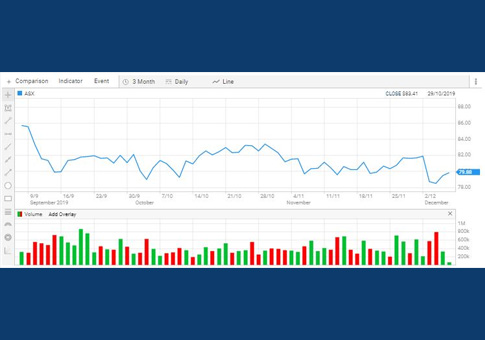Terms used in pricing options
When considering options it is important to understand the terms used.
Pricing of options
Understanding how options are priced can help you to make smart investment decisions
When considering options it is important to understand the terms used.
An option's premium is the only element of the option not specified by ASX. It is influenced by a number of factors, including the price and volatility of the underlying stock, the option's exercise price and the time until expiry. An option's premium can be broken into two parts, intrinsic value, and time value:
Premium = intrinsic value + time value

The longer the time to expiry, the greater an option's time value (both calls and puts), all else equal.

If the stock goes ex-dividend during the option's life, option pricing is usually affected.

Increases in interest rates can lead to higher call premiums and lower put premiums, all else being equal.
Traders must make assumptions about a security price behaviour over the option's life. The margin estimator can help you to estimate prices.
Both courses have 10 modules with each module taking 20-25 minutes to complete
Options are flexible tools that appeal to active investors. Take this course to learn how to magnify profits or protect your portfolio by buying or selling options.
Apply your technical analysis skills using the advanced charting tool. You can create your own charts with 8 different chart types, technical indicator overlays, update chart intervals, add dividend events, or run company code price comparisons.

When you trade an option, the value of the trade is generally lower than if you were to trade the same number of the underlying shares. Because of this, options are generally a cost efficient way to trade your view of a stock. There are three types of costs to consider.
Brokerage varies and can be:
Find a broker or adviser
Find a broker or adviser to help you invest.
ASX acknowledges the Traditional Owners of Country throughout Australia. We pay our respects to Elders past and present.
Artwork by: Lee Anne Hall, My Country, My People
